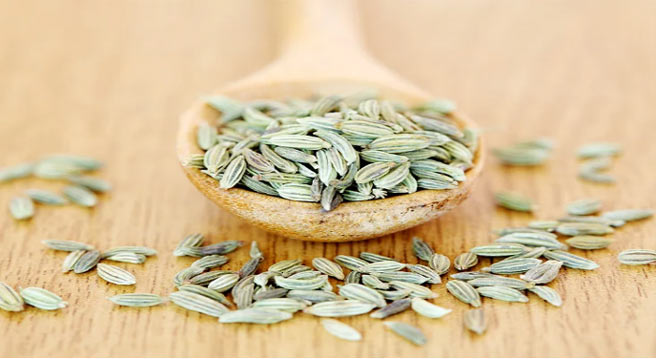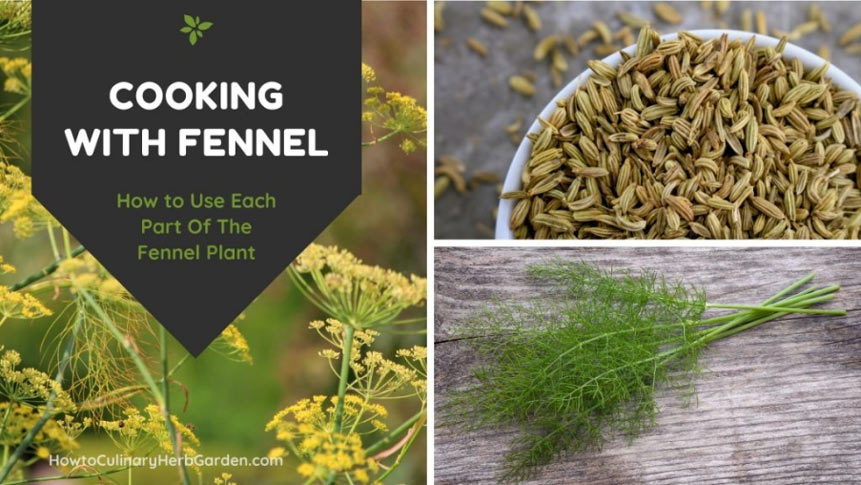Fennel is a wonderful herb used for centuries due to its many health benefits. From aiding digestion to relieving pain and cramps, the properties of Fennel are well-known and appreciated. In addition to being eaten raw or cooked as a vegetable, you can enjoy its delightful flavor in tea form or even consumed as fennel seeds. Not only do they have numerous medicinal uses, but they can also be used as an aromatic spice when cooking certain dishes! If you're looking for ways to incorporate this amazingly versatile plant into your diet, read on and discover all the amazing benefits of fennel and fennel seeds!
Overview of the benefits of Fennel and Fennel Seeds.
Fennel is a nutrient-rich herb that offers many benefits. It can aid digestion, reduce inflammation, and relieve pain and cramps. Eating Fennel raw or cooked as a vegetable, consuming it as an herbal tea, or even using its seeds as an aromatic spice are all great ways to benefit from the plant's medicinal properties. The seeds are also rich in antioxidants and vitamin C, which can help protect the body from disease. Fennel's flavor is a delightful addition to any dish, making it an incredibly versatile herb worth adding to your diet!
Nutritional profile of Fennel and Fennel Seeds
Fennel is a nutrient powerhouse containing high amounts of dietary fiber, vitamin C, potassium, magnesium, calcium, and iron. Fennel seeds are also an excellent source of vitamins A and K and contain compounds called phytonutrients that boast numerous health benefits.
Additionally, the seeds are rich in antioxidants that help protect the body from disease. Whether as a vegetable, herbal tea, or spice, Fennel will give your body essential nutrients and health benefits.
3. How to incorporate Fennel and Fennel Seeds into your diet
Fennel can be enjoyed in a variety of different ways! Eating it raw or cooked as a vegetable, consuming it as an herbal tea, or using its seeds as a spice are all great ways to benefit from the plant's medicinal properties. When cooking with Fennel, you can add the finely chopped leaves to salads and soups for flavor, use the bulb in cooked dishes such as stir-fries and roasted vegetables, or sprinkle the seeds over a dish as a finishing touch. Fennel is an incredibly versatile herb, so there are plenty of ways to incorporate it into your diet!
Fennel is a wonderful way to add flavor and health benefits to any meal. You can enjoy Fennel in many ways with its numerous medicinal properties and deliciously aromatic flavor. From salads and soups to herbal teas and spices, the versatility of this nutrient-rich herb is sure to provide your body with essential nutrients and health benefits. So why not give Fennel a try today? It's sure to become one of your favorite ingredients!
How to Use Fennel and Fennel Seeds in Cooking
Fennel is an incredibly versatile herb, making it a great choice for flavoring any dish. The finely chopped leaves can be added to salads and soups for a delightful flavor, or the bulb can be cooked in dishes like stir-fries and roasted vegetables.
Fennel seeds also make an excellent addition to many dishes and can be used as an aromatic spice when cooking certain dishes too! With its many uses in the kitchen, it's no wonder why Fennel has been a popular ingredient for centuries. So why not give this amazing herb a try today? You won't regret it!
4. Potential Health Benefits of Eating Fennel and Fennel Seeds
1. Improved Digestion: Fennel contains dietary fiber, which can help improve digestion and reduce bloating.
2. Reduced Inflammation & Pain Relief: Fennel is known for its anti-inflammatory properties, which may help relieve pain associated with cramps and other conditions.
3. Antioxidant Protection: The antioxidants found in Fennel can help protect the body from disease.
4. Improved Heart Health: Fennel is rich in potassium and magnesium, which are known to help improve heart health.
5. Improved Immunity: Fennel is rich in vitamin C, which can help boost the immune system.
6. Reduced Risk of Cancer: The compounds in Fennel, such as phytonutrients and antioxidants, have been linked to a lower risk of certain types of cancer.
7. Improved Bone Health: Fennel is high in calcium, which can help strengthen bones and improve overall bone health.
8. Improved Function: The vitamin K and folate found in Fennel can help improve brain function.
5. Different Preparation Methods for Consuming Fennel and Fennel Seeds
Fennel can be enjoyed in a variety of different ways! Eating it raw or cooked as a vegetable, consuming it as an herbal tea, or using its seeds as a spice are all great ways to benefit from the plant's medicinal properties.
1. Raw Fennel: Rinse off the fennel bulb and enjoy it raw in salads, sandwiches, and wraps.
2. Cooked Fennel: Slice the bulb and add it to stir-fries, soups, roasted vegetables, or even pasta dishes.
3. Fennel Tea: Add fennel seeds to boiling water and steep for 5-10 minutes. This tea can help with digestion and reduce bloating.
4. Fennel Seeds: To use fennel seeds as a spice, grind them in a spice grinder or mortar and pestle before adding them to any dish for an aromatic flavor boost.
5. Fennel Extracts: Fennel oil and other extracts can be used as a topical treatment for skin ailments or taken orally to reduce inflammation.
Whether you're looking to add flavor to your dishes or reap the health benefits of Fennel, there are plenty of ways to incorporate this amazing herb into your diet!
6. Possible Side Effects from Consuming Too Much Fennel or Fennel Seeds
While Fennel and its seeds are generally safe to consume in moderate amounts, there may be some potential side effects from consuming too much. Some of these side effects include:
1. Allergies: Fennel can cause an allergic reaction in some people, so it's best to exercise caution when introducing it into your diet.
2. Diarrhea: Eating too much Fennel or fennel seeds can cause diarrhea in some people.
3. Hormone Imbalance: Fennel contains phytoestrogens, which may affect hormone balance in women who consume too much.
4. Interactions with Medications: Fennel may interact with certain medications, such as blood thinners, so speaking with your doctor before consuming it is important.
FAQs
How many fennel seeds should I eat a day?
Fennel seeds can be consumed in moderate amounts. Generally, consuming one teaspoon of fennel seeds per day is recommended. However, it may vary with individual needs and health conditions; therefore, it's best to consult a healthcare professional before consuming more than the recommended amount.
What are the medicinal uses of Fennel?
Fennel has long been used for its medicinal properties. It is known to aid digestion, reduce cramps and inflammation, relieve congestion, and combat bacteria. In addition, Fennel can also help boost immunity, regulate hormone levels, improve vision, and relieve anxiety and stress.
Is Fennel hot or cold?
Fennel is considered to be a cooling herb. The essential fennel oil can be used as an aromatherapy agent, helping to reduce inflammation and soothe the body. It also has anti-spasmodic properties, making it beneficial for relieving pain and cramps.
Conclusion
Fennel is a wonderful herb that offers numerous health benefits and can be used in many ways. Whether you consume it raw, cooked, as tea, or even use it as an aromatic spice for certain dishes, Fennel has something for everyone. Its distinct flavor and wide variety of uses make it one of the most versatile plants in the world. So why not try and discover the amazing health benefits of Fennel for yourself? You won't regret it! Best of luck on your journey to better health and wellness with Fennel! Enjoy!






